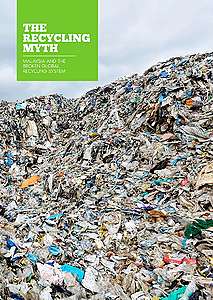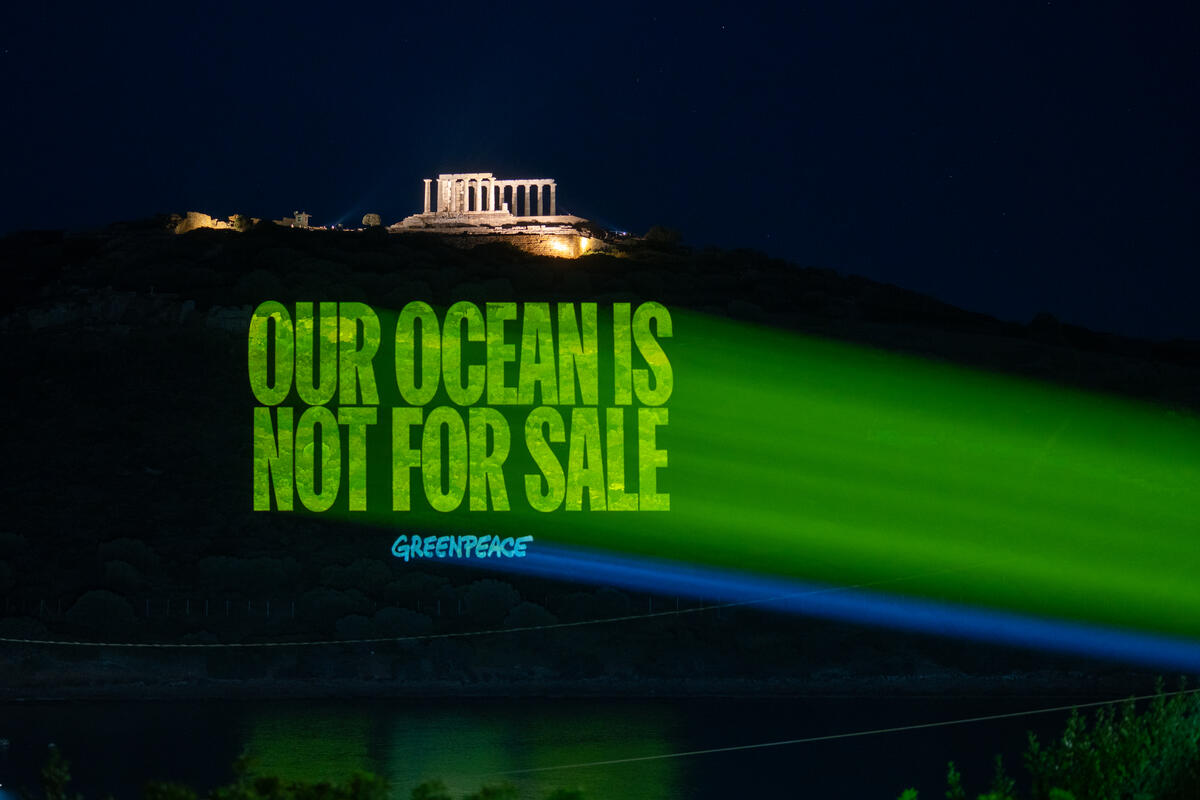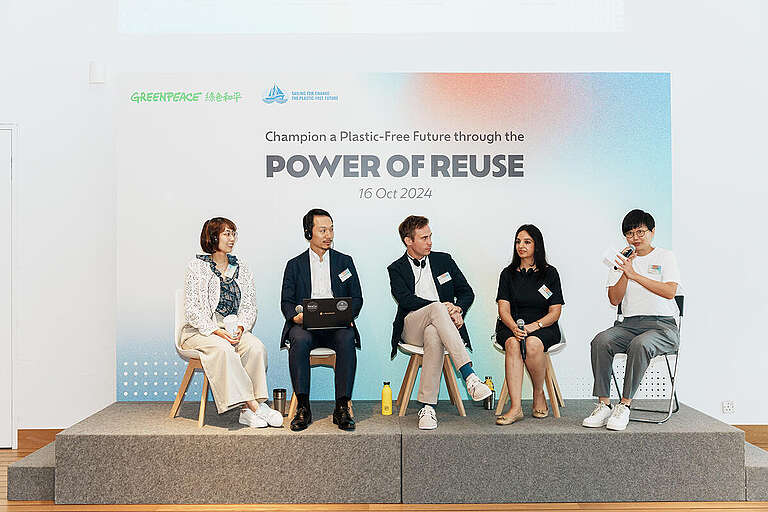
In many places a waste management system exists that claims to dispose, incinerate or recycle collected plastic waste. In reality, most of the plastic waste generated in high-income countries is transported to low- and middle- income countries, where the plastic waste is imported to be recycled or further processed.
In January 2018, high-income countries lost their major importer when China banned most imports of plastic wastes. Southeast Asian nations eagerly jumped in to fill the gap, with Malaysia taking the lead by importing nearly half a million tonnes between January and July 2018 [1]. An international trade system, based on multilateral agreements, is supposed to regulate the selling, buying, importing and exporting of recyclable plastic wastes. A recent Greenpeace investigation shows that this international trade system is broken.
The imported waste is often not processed correctly but dumped or burned in essentially unregulated ways, in violation of international agreements. Criminal actors in Southeast Asia have abused the inability of legal operators and failure of authorities to cope with the increased imports to make quick, dirty money. After protests by Malaysian activists and a number of news articles decrying how apparently illegal operators have been harmfully dumping the waste in unsuitable places or burning it openly, the Malaysian government, among other nations took steps to address the issue by imposing a temporary import ban on plastic waste. This ban was recently turned into a permanent ban for plastic scrap. However, the official definition of plastic scraps remains vague. In addition. Malaysia said it would only phase out plastic waste imports entirely over the next three years [2]. During the investigation, Greenpeace was shocked by the extent of the environmental pollution and health conditions likely caused by illegal burning and dumping of imported plastic waste. The temporary ban on imports in Malaysia did not halt unregulated or poorly regulated burning and dumping activities. These are still ongoing. Existing monitoring and enforcement policies and practices in Malaysia are inadequate to put a stop to these operations.




Discussion
May I know who are the authors so I can properly cite this report?
Salam selamat mlm sahabat ku sybamin myr
Nice i really enjoyed reading your blogs. Keep on posting. Thanks
I like this website very much, Its a really nice billet to read and incur information.